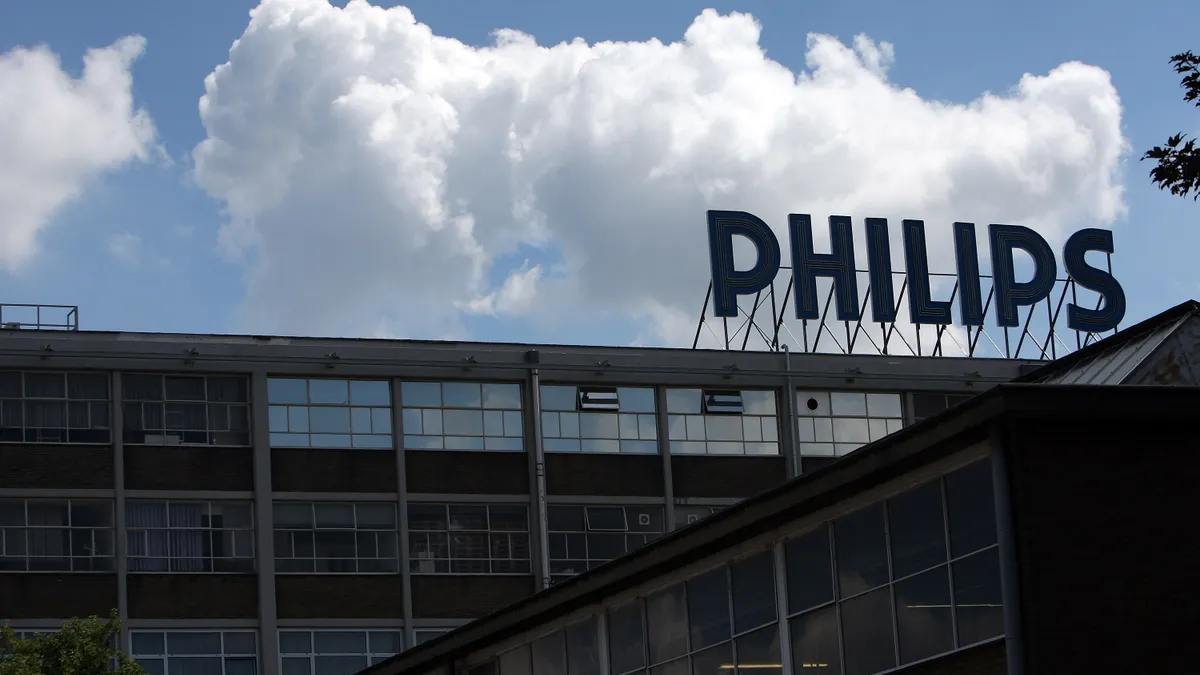Dive Brief:
- Shareholders have voted against discharging Philips’ management board from its responsibilities for 2022.
- In the Netherlands, shareholders need to annually approve the actions of a company’s directors to free them from liability for their conduct. The vote against the motion leaves investors free to mount legal challenges against board members for their actions last year.
- Philips attributed the loss of the vote to guidance from “proxy advisors to signal discontent in respect of one former member of the Board of Management.”
Dive Insight:
Shareholders have now signaled their discontent with Philips two years in a row. At its 2022 meeting, Philips lost a vote on the pay of its leadership team. This time around, shareholders voted in favor of the pay packages for executives, who waived their bonuses, but used another item on the agenda to indicate their dissatisfaction with the company’s performance.
Philips share price fell 59% last year, adding to losses the prior year, as the recall of sleep and respiratory devices dragged on. The situation led proxy advisors, named by Reuters as Institutional Shareholder Services and Glass Lewis, to recommend shareholders vote against discharging the management board.
According to Philips, the proxy advisors recommended shareholders vote against the motion to show their dissatisfaction with “one former member of the Board of Management.” Philips did not name the former member, but the only person to leave the management board last year was Frans van Houten, who was CEO until October 2022 and drew criticism over his pay and handling of the recall of some 5.5 million sleep apnea machines and other respirators.
It is unclear if the loss of the vote will have ramifications for Philips. While the vote means legal action is possible, Reuters reports that it is “seen as largely symbolic” and a means for investors to register their dissatisfaction with how the recall progressed under van Houten.
Seventy-six percent of shareholders who voted on the discharge motion sided against Philips, but the company encountered little resistance on the other items on the agenda. All the other items passed with at least 94% of shareholders voting in favor.













